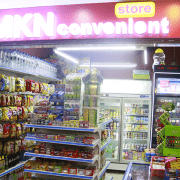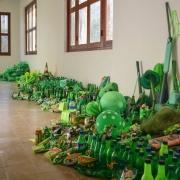One Time Cleanup Drives or Sustained Long Term Efforts?
Since the inception of GarbageCAN, Sustainable Waste Management, we have been asked whether clean up drives or a long term effort is better. After three years in the business I have come to the conclusion that while both have their pros (there really are no cons one way or another), long term effort is certainly better However, it depends on how both are viewed. Both are very different in nature and if executed properly can be highly effective.
One time clean ups serve an important purpose. They bring attention to the spot that needs cleaned up and the issue at hand. And as a plus, it makes people feel good. However, usually the execution is ineffective, uses up a lot of resources, only tends to serve the latter, and the point of the clean-up is missed completely. Volunteers and good Samaritans join in the cause to genuinely support the clean ups, but there are minimal or no follow ups after the event. Whether this should be the organizer’s responsibility or the participants’ or the authorities’ (that are in charge of the area) is up for debate.
One time clean ups most of the times are sparked as a reaction to a certain event. The most recent high-profile clean-up was started due to Shaniera Akram’s (much appreciated) outrage over the state of Karachi’s Clifton Sea View where waste, including medical waste was dumped, and had washed up to the shore. And as expected, the attention she brought to the matter pushed the authorities for a quick clean up.

The question though is, was the actual problem addressed? Did the authorities find out where the medical waste was coming from? Why was the waste being dumped there? Are there no proper systems and disposal areas in place? If they are, then why are they not being used? Is it because the facilities are inadequate? Or is there foul-play and corruption involved? What can be done to solve the problem and stop this from happening again? Is it the citizens’ behavior that needs to be addressed? Is the housekeeping staff not doing their jobs? Is the system broken?
These and similar questions are glossed over during one time clean ups. While I think they should be seen as the opportunity to ask exactly these questions. It gives the patrons and the participants a starting point to begin thinking about them and to come up with solutions that they can suggest during the next clean up. These questions also spark a thought process that could lead to a sustainable solution. One-time clean-up drives should be seen as an educational opportunity rather than a feel good day out with the family and friends.

If these questions are not asked, then after every one-time clean-up the area will be trashed again and we will have wasted a huge amount of resources just to land back at square one at best. At worst, everyone involved would think that they have fulfilled their responsibility and whichever CSR program supported the event would think they have served their purpose in supporting the authorities, and the authorities will continue as is. This is where we think that this approach is short-sighted.
A long term sustained effort is much better in this regards, even if it is as ‘small’ as one person continuously keeping an area clean. This ensures regular follow ups, implementation of possible solutions, slow yet eventual behavior change, and an overall more effective, and resource-savvy clean up. This approach also allows engagement with the regular visitors in the area, the community that lives around it, and the concerned/relevant authorities.
It may be a bit tough, time consuming, and tiring to continuously keep asking the same question until the issue gets resolved or a working system is put into place, but there are no short cuts to it. As humans we continuously produce waste, and as consumerism increases we have been increasingly producing waste that does not rot away naturally. Therefore, we need to continuously process the trash and not let it pile up while we wait for the next clean up after a couple months.
Hence, we suggest that a long term sustained effort is much better than one time clean-ups that may only end up providing good optics. The sustained effort may be as small as adopting a couple streets, hiring two sweepers to make sure the space stays clean through the month or several months while a solution is chalked up through engagement with the local community and the authorities, and handing the area over once the adoption time is over. This method is quite cheap as well and does not need a huge organizational effort to execute it. It can be CSR sponsored or the small spaces can be adopted by individuals as well.
We cleaned up spaces such as the Gaari Khaata area in Saddar and the area around Civil Hospital for a month leading to different results. Gaari Khaata has a constant community, and as it was involved the space stayed clean for a long time after we left. On the other hand, the Civil Hospital area has a new footprint every hour. Hence, it needs to be taken care of all the time and only the community around the area cannot be relied upon to clean the garbage as it’s a monumental task, hence the municipal authorities need to step in. Both efforts provided us with an opportunity to educate ourselves and after weighing all the needs, provide an effective long term plan.

After everything is said and done, I reiterate that both one-time clean-ups and long term sustained solutions both have their pros. However, in order to make the efforts effective or to leave them hollow is up to us. I will continue to push for one-time clean-up drives to be seen as educational opportunities, where the organizers create awareness, and the participants learn, rather than the fulfillment of a responsibility. I will also continue to push instead for long term efforts that are cost effective and provide seemingly slow yet sustainable results and ask for CSR efforts to be shifted towards them. And as a concluding line I will again push citizens and state alike to learn about their civic responsibilities/duties and to fulfill them.






Leave a Reply
Want to join the discussion?Feel free to contribute!